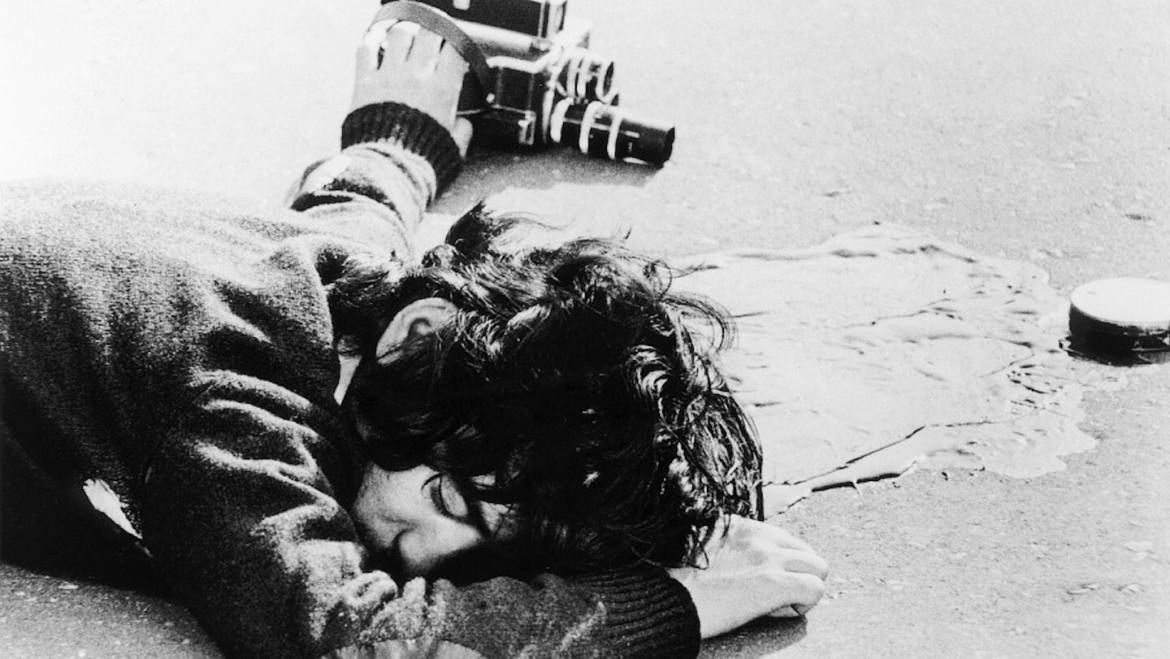Events
Film
03/24/2023
- 03/27/2023
Brooklyn, NY
Landscape Theory: Post-1968 Cinema in Japan

Time and Location
March 24, 25, and 27
E-Flux Screening Room and Pratt Institute (Brooklyn, NY)
About
Join us on March 24, 25, and 27, at e-flux Screening Room and Pratt Institute for Landscape Theory: Post-1968 Radical Cinema in Japan, a screening program curated by Go Hirasawa and Ethan Spigland.
This series of screenings and discussions will be focused on “landscape theory” (fukeiron), which was proposed by film critic and anarchist Masao Matsuda in 1969, and further developed by film director Masao Adachi, screenwriter Mamoru Sasaki, and photographer Takuma Nakahira as a new theory of politics and revolution. The birth of landscape theory coincided with the production of the film Ryakusho renzoku shasatsuma (A.K.A. Serial Killer, 1969), a documentary film about an absent protagonist, nineteen-year-old Norio Nagayama, who had been convicted of a series of indiscriminate gun murders that had occurred between October 1968 and April 1969, in Tokyo, Kyoto, Hakodate, and Nagoya. The film consists entirely of shots of landscapes that he may have encountered in his wandering from his birth until his arrest. Landscape theory attempted to locate the power-state not in a typical political domain, but rather in the ordinary everyday landscape, expanding the interpretation of existing discussions dealing exclusively with visible landscape further, to the extent of naming invisible as well as visually recognizable structures “landscape.” Screenings of films by Masao Adachi, Koji Wakamatsu, and Nagisa Oshima will be followed by discussions with Adachi and film scholars. The aim will be to situate landscape theory in its Japanese historical context and to assess its relevance today. A screening of a selection of films by Jean-Luc Godard and the Dziga Vertov Group will contrast Japanese landscape theory with investigations of the politics of representation by filmmakers working outside of Japan during the same time period.
Go Hirasawa is a film programmer and curator. He has organized special screenings and exhibitions focusing on Japanese cinema and art of the 1960s and 1970s at various art theaters, cinematheques, and film festivals, as well as art museums in Japan and abroad. In 2006 he taught as a part-time lecturer in the Department of Art Studies at Meiji Gakuin University, and in 2007 at the School of Network and Information at Senshu University, among others. In 2009 he joined the Institute of Language and Culture at Meiji Gakuin University as a researcher. From 2011-2012 he taught as a visiting scholar at Columbia University, from 2014-2015 at Goldsmiths, University of London, and from 2016-2017 at New York University. In 2021, he received a PhD from the Graduate School of Humanities at Leiden University and the Université Sorbonne Nouvelle. His most recent publication Expanded Cinema and Intermedia: Critical Texts of the 1960s (co-edited by Ann Adachi-Tasch and Julian Ross) was published in 2020. He also organized the film screening event Japanese Cinema Expanded at the Museum of Modern Art in New York in 2021.
Ethan Spigland is a Professor in the Humanities and Media Studies Department at Pratt Institute. He received an MFA from the Graduate Film Program at Tisch School of the Arts, New York University, and a Maitrîse in Philosophy from the University of Paris VIII under the supervision of Gilles Deleuze and Jean-François Lyotard. Ethan is also an award-winning screenwriter, filmmaker, visual artist, critic, and curator. At present, he is working on a documentary about Julius Eastman. He completed two short films in collaboration with renowned architect Steven Holl. One of these, Luminosity Porosity, formed part of an installation at the Gallery Ma in Tokyo, Japan. His project, Elevator Moods, was featured in the Sundance Film Festival and South By Southwest, and won a Webby Award in the Broadband Category. His short film, The Strange Case of Balthazar Hyppolite, won the Gold Medal in the Student Academy Awards, and was shortlisted for an Oscar. He writes regularly on film and media for The Brooklyn Rail, Film Comment, and many other publications. He is a contributor to the forthcoming book Reading with Jean-Luc Godard on Caboose Press.
For more information visit eflux website.
This event is supported through a JFNY Grant for Japanese Studies.
- Featured